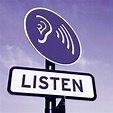Tell Yourself Your Story
Back when I was young and could live on coffee and cigarettes and bar food, I had a friend named John. We shared an apartment on Silver Terrace in Waterville while I worked as a fry cook at Bill’s Lunch. I don’t know how he paid his rent.
John and I were interested in a lot of the same things—poetry, literature, the outdoors, the ocean. He was also a natural storyteller, something I attributed to his youth in the South somewhere, Georgia, maybe. After he left Maine, we kept up a correspondence. He would spin me wonderful tales of his travels, surfing on the Outer Banks.  He had a facility with telling a story that I thought was something innate, that people either had or they didn’t.
He had a facility with telling a story that I thought was something innate, that people either had or they didn’t.
Now, of course, I know better. There are writers, of course, who seem to spin their stories effortlessly. But I believe now there are ways to make yourself a better storyteller. What I think I have learned is how good storytelling is based not on speaking but on listening.
Dialogue is the most obvious part of storytelling that relies on listening. We’ve all had the experience of reading fiction where the characters don’t talk like real people. George V. Higgins memorably demonstrated this in an article about writing where he published verbatim the text of a criminal deposition. We don’t need the ahs and umms of that kind of speech, but we need to listen to people speaking to capture both the vocabulary and rhythm of speech, if we’re going to render it in any kind of believable way.
But the effect of listening on storytelling goes deeper than the language of the story. The best storytellers I know are actually in a kind of dialogue with their listeners, watching their faces for signs of confusion or boredom, adjusting the story as it goes for maximum effect. In effect, the storyteller is listening to his or her audience. As writers, it’s tough for us to do this except at a remove. But getting better at listening will always repay effort.
Maybe the best we can hope for is to listen, once we have our story out in some rough form, like a reader. Listening like a reader means stepping away from the person who wrote the story and recasting yourself as if you’re hearing it for the first time. Hearing it.
Listening is not an innate skill.  We are accustomed to rapid fire exchanges of information, questions and answers, communication to get things done. Often when we’re engaged in a conversation with someone we’re only half-listening to what is being said, crafting our response, guessing ahead what the speaker is after. It’s an attempt at efficiency, I suppose, but can be mechanical. If you’ve ever had someone truly listen to you, you know what I’m talking about. It’s a skill you develop and it requires the ability to slow down, clear your mind, and accept what you’re hearing fully. If you can do this with your own work—listen like a reader—I think you will create a stronger connection with your readers.
We are accustomed to rapid fire exchanges of information, questions and answers, communication to get things done. Often when we’re engaged in a conversation with someone we’re only half-listening to what is being said, crafting our response, guessing ahead what the speaker is after. It’s an attempt at efficiency, I suppose, but can be mechanical. If you’ve ever had someone truly listen to you, you know what I’m talking about. It’s a skill you develop and it requires the ability to slow down, clear your mind, and accept what you’re hearing fully. If you can do this with your own work—listen like a reader—I think you will create a stronger connection with your readers.
Lea Wait's Blog
- Lea Wait's profile
- 506 followers



